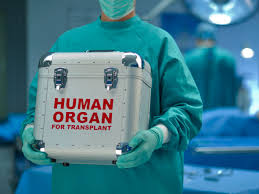ASSAM
- Violation of PF law by small tea growers.
- With small tea growers and bought leaf factories shying away from providing social security benefits to their workers, the Assam Tea Employees Provident Fund Organisation (ATEPFO) has started wielding the big stick.
- Besides issuing a notice to small and medium tea growers, the ATEPFO has also asked the bought leaf factories and other big gardens not to purchase green leaf from growers who do not comply with The Assam Tea Plantations Provident Fund and Pension Fund and Deposit Linked Insurance Fund Scheme Ac
- Only a handful of such small and medium gardens have complied with the Act so far. According to the ATEPFO, there could be nearly 2,000 small tea gardens which have plantation areas of over 50 bighas.
INTERNATIONAL
- After Arab states, Israel seeks to ban Al-Jazeera.
- Israel seeks to ban Qatar’s flagship Al-Jazeera news network from operating in the country, joining regional Arab states that already shut the station after accusing the broadcaster of inciting violence.
- Jordan and Saudi Arabia have recently closed Al-Jazeera’s local offices, while the channel and its affiliate sites have been blocked in Saudi Arabia, United Arab Emirates, Egypt and Bahrain.
- K. denies agreeing to €40 billion Brexit Bill
- Britain does not recognise media reports that the government is willing to pay €40 billion (approx. ₹3.1 trillion) to exit the European Union, Prime Minister said.
- The so-called “exit bill” is one of the first issues on the Brexit negotiating agenda, and also one of the most contentious. The EU has floated a figure of €60 billion, while Britain has not indicated how much it would be prepared to pay.
- Britain has less than two years to negotiate the terms of its exit from the EU — an unprecedented untangling of more than 40 years of legal, economic and political ties.
NATIONAL
- India will gain 100% literacy in next 5 years, Union HRD Minister Prakash Javadekar says
- Union HRD MinisterPrakash Javadekar claimed that India would achieve 100 per cent literacy rate within the next five years.
- “There was a literacy rate of 18 per cent in the post independence era. Today it has gone up to 80 per cent and I guarantee that within next five years, it will be 100 per cent. There will be no illiteracy in the country,” he said while speaking at the ‘Festival of Education’ organised by the Rajasthan government along with education provider GEMS Education.
- Lack of networking leading to organ wastage.
- Thousands of people die of end-stage organ disease in the country every year. Yet, hundreds of organs such as heart, lungs and liver donated by the deceased in India are being discarded even after families of the deceased volunteered to donate them, National Organ and Tissue Transplant Organisation data show.
- Until 2013, many cities including Mumbai had not done a heart transplant because they didn’t have a programme to retrieve organs from the brain-dead but with a system in place, the situation is improving.
- Organ transplant, although expensive, is the only permanent cure for patients with irreparable organ damage. During this procedure, doctors replace the ailing organ with a healthy one from a brain-dead patient.
- Organisations such as state-level (SOTTO) and regional-level (ROTTO) organisations will aim to distribute organs in a fair and judicious manner.
- Need to increase cold storage capacity for farm produce.
- There is a need to increase the cold storage capacity for farm produce by 30-40 lakh tonnes as huge raw foodstuff perish in India, a top official of Ministry of Food Processing Industry (FPI) .
- According to a rough estimate, farm produce worth Rs one lakh crore perish in India annually for want of adequate storage infrastructure and processing facility.
- India’s cold storage capacity is 3.5 crore tonnes right now, which was short by 30 to 40 lakh tonnes.
- Minimum Support Price (MSP) system for perishable raw foodstuff won’t be effective unless the storage and processing facilities are developed.
- Know all about Indian tribes at the click of a mouse.
- These and many more questions about lifestyle, living conditions and historic facts about tribals are being documented in the first attempt to create a unique repertoire of Tribes of India.
- The ministry of tribal affairs to create an online database on Tribes of India, which would document their evolution, place in history, contribution in India’s freedom struggle, changes in lifestyle, eating habits, architecture of huts or semi-pucca houses, education level, mortality rate, traditional art, folk dances and other anthropological details.
- The database would include rare photographs and videos – running in thousands – collected from different Tribal Research Institutes (TRIs) spread across states. Though TRIs have always held these photographs, there had been no attempt to collect them and put them together in one place as a database.
- At present, 10 crore Scheduled Tribes make up 8.6% of the country’s population. However, despite the large numbers, there has been no attempt to document their unique lifestyles.
- The database follows the central government’s attempt to document the lives of Scheduled Tribes and dedicate museums to them. Last year, Prime Minister Narendra Modi had called upon states to trace the contribution of Scheduled Tribes in the freedom struggle of India and build museums.
- Since then, states have been working on several proposals. This online database would also have links to state museums once they are constructed.
- APSC Mains 2024 Tests and Notes Program
- APSC Prelims Exam 2020- Test Series and Notes Program
- Apsc Prelims and Mains 2024 Tests Series and Notes Program
- Apsc Detailed Complete Prelims Notes


 and join our Telegram channel: https://t.me/pscnotes2025](https://assam.pscnotes.com/wp-content/plugins/feeds-for-youtube/img/placeholder.png)